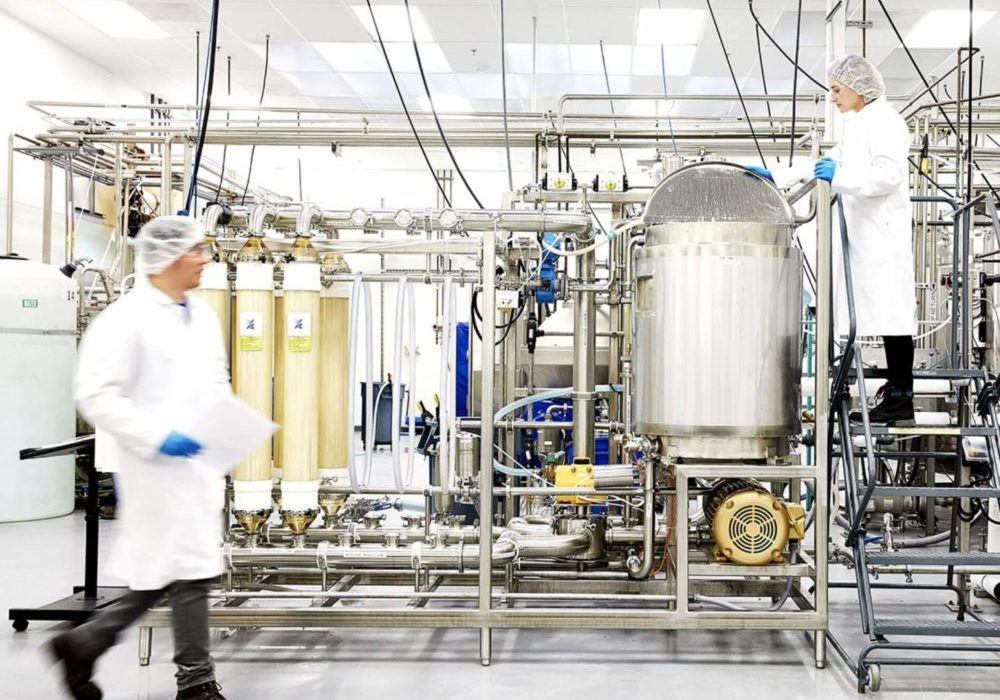A recent report from the Good Food Institute (GFI) indicates that the last 18 months has been a record period of investment for fermentation companies creating alternatives to animal-derived foods and ingredients.
GFI’s State of the Industry fermentation report analyses the potential of microbial fermentation as a third pillar of the alternative protein industry, alongside plant-based proteins and cell-based cultivated meat. Fermentation — which involves working with microbes like microalgae or mycoprotein — can be used to produce protein biomass, improve plant proteins, and create novel functional ingredients.
Among the latter is the synthesized heme which Impossible Foods uses to imitate the flavor and ‘bloodiness’ of beef in its plant-based patties.
Fermentation also underpins other foodtech innovations like natural food dyes, hyper-sweet sweeteners, and super-powerful preservatives.
Several of the world’s largest food and life science companies, including DuPont, Novozymes, and DSM, are likewise developing fermentation-based products for the alt-protein industry. Even JBS, the world’s largest meat company, is leveraging fermentation for alt-proteins through its new and mostly plant-based brand, Planterra Foods.
GFI’s report looks into how the fermentation-based alt-protein industry goes back as far as 1985, when Quorn became its first commercial player. That all feels like ancient history now, with the mycoprotein brand joined by a growing field of competitors. By the middle of this year, 44 fermentation companies focused on alternative proteins had formed around the globe, almost half of them US-based. Twenty-one of these 44 companies launched in 2019 and the first seven months of 2020 alone. This is a 91% increase from 23 companies in 2018.
According to GFI, fermentation companies devoted to alternative proteins received more than $274 million in total VC funding globally in 2019 – 5x the total raised by startups in the segment in 2018. In the first seven months of 2020 alone, that figure exploded to $435 million, even with Covid-19 disrupting global markets.
Since the first GFI-tracked investment in the segment in 2013, fermentation companies focused on alt-proteins have raised more than $837 million, of which 85% was raised in 2019 and the first seven months of 2020.
Compared to other areas of alt-protein development, fermentation companies raised 3.5x times more capital than their cultivated meat counterparts worldwide in 2019. Alt-protein VC investments in 2020 included the fermentation industry’s largest-ever raise: animal-free dairy brand Perfect Day’s $300 million Series C.
In AgFunder‘s recent Agrifoodtech Mid-Year Investment Review, fermentation falls under a category called Innovative Food. This includes startups working on cultured meat, plant-based and fermented proteins, and novel ingredients. AgFunder’s report found the segment has been bolstered by Covid-19’s impact on food supply chains, as well as the animal meat industry more specifically.
Innovative Food startups raised more funding in the first half of 2020 than in the whole of 2019, according to the AgFunder research, making it the third most-funded category in H1 2020. By the end of June, Innovative Foods had already surpassed its FY 2019 total funding figure, accounting for 13% of all H1 2020 funding with a total of $1.1 billion raised across 93 deals versus FY 2019’s $1 billion across 158 deals.





